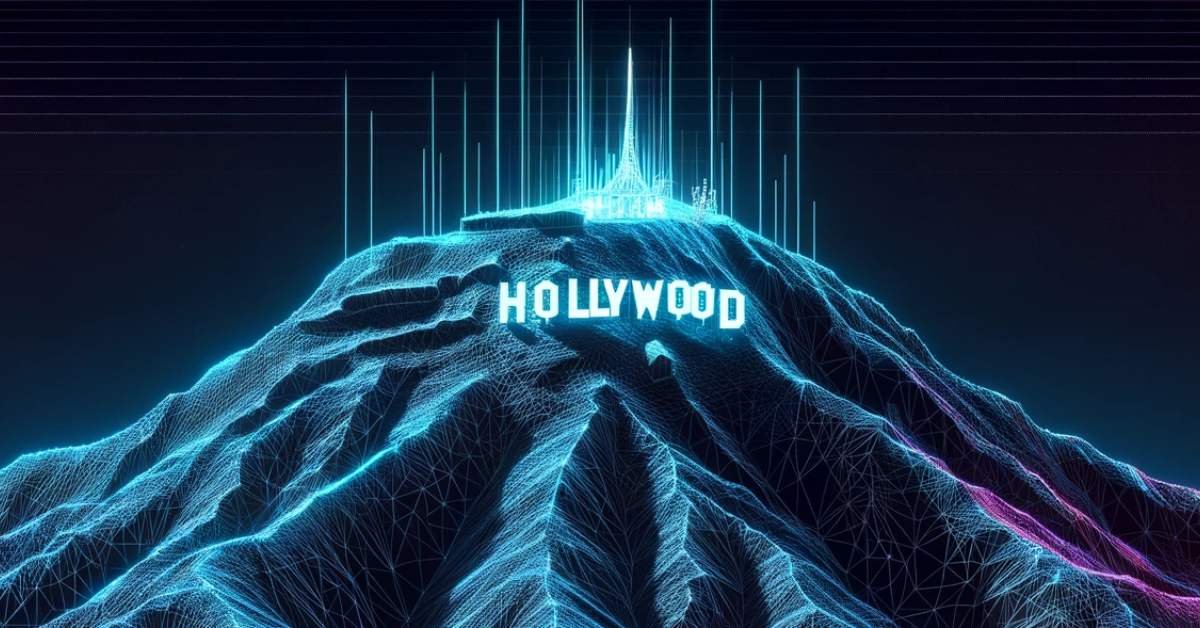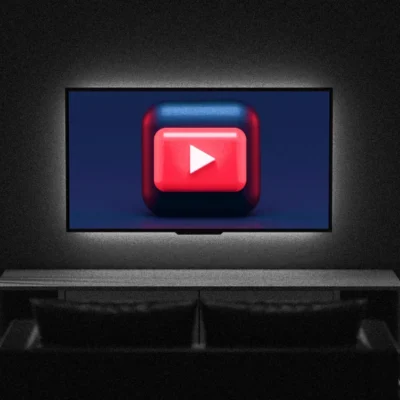Hollywood is on the brink of a technological revolution. The entertainment industry, known for its glitz, glamour, and human creativity, is now embracing artificial intelligence (AI) like never before. With AI-driven entertainment studios emerging, backed by industry veterans, the way movies, TV shows, and digital content are created is undergoing a massive transformation. From scriptwriting to post-production, AI is reshaping Hollywood’s future, raising both excitement and concerns among creatives and audiences alike.
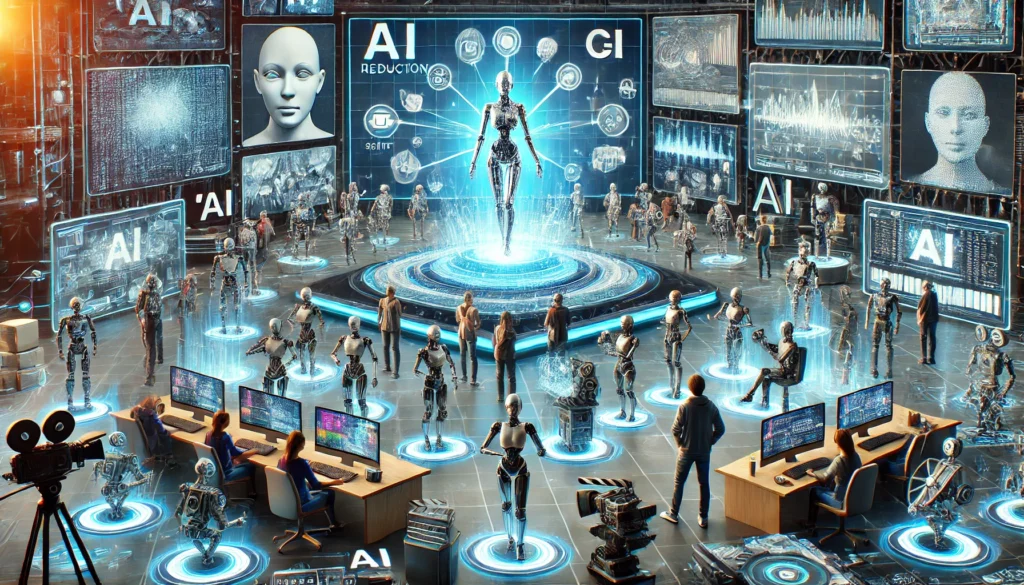
The Rise of AI-Driven Entertainment Studios
What Are AI-Driven Studios?
AI-driven studios are entertainment companies that integrate artificial intelligence into various stages of content creation. These studios leverage advanced machine learning algorithms, data analytics, and deep neural networks to automate and enhance filmmaking processes.
Why Are Industry Veterans Investing in AI Studios?
Hollywood’s most experienced filmmakers, producers, and executives are backing AI-driven studios because of:
- Efficiency: AI reduces the time and cost required for scriptwriting, editing, and even casting.
- Innovation: AI-generated scripts and VFX create never-before-seen cinematic experiences.
- Market Demand: Streaming services and online content platforms are hungry for fresh, engaging, and data-driven storytelling.
- Personalization: AI can analyze viewer preferences and create tailored content for different audiences.
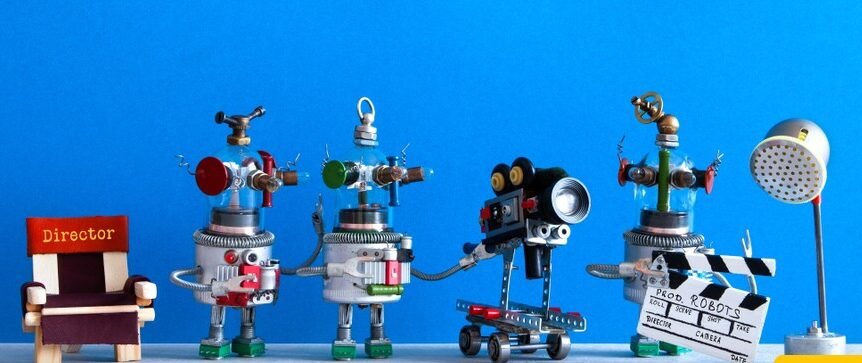
Key Areas Where AI is Transforming Hollywood
1. AI in Scriptwriting
- AI tools like OpenAI’s ChatGPT and IBM’s Watson are being used to draft scripts, suggest plot twists, and analyze successful story patterns.
- Filmmakers can input basic ideas, and AI can generate entire screenplays in minutes.
- AI-powered software can detect elements that increase audience engagement and predict a movie’s box-office success based on historical data.
- Some studios are experimenting with hybrid models, where AI assists human writers rather than replacing them completely.
2. AI in Casting and Virtual Actors
- Deepfake technology and AI-generated actors are revolutionizing casting.
- Studios can now digitally create actors or de-age existing stars for prequels and flashback scenes.
- AI helps filmmakers find the perfect cast by analyzing facial expressions, voice patterns, and audience preferences.
- AI-powered voice synthesis allows deceased actors to “reprise” their roles in new productions, raising ethical questions about digital resurrection.
3. AI in Visual Effects (VFX) and Animation
- AI-driven CGI is making hyper-realistic digital characters and environments possible.
- Traditional animation, which used to take years, can now be completed in a fraction of the time using AI-enhanced tools.
- AI can automatically remove background elements, enhance special effects, and even color-correct footage without human intervention.
- AI-driven motion capture allows for more fluid and realistic movements in animated and live-action hybrid films.
4. AI in Film Editing and Post-Production
- AI algorithms can automatically cut, edit, and enhance scenes based on pacing, tone, and emotional impact.
- Automated editing software helps speed up post-production, saving studios millions of dollars.
- AI can seamlessly integrate CGI elements with live-action footage, making sci-fi and fantasy movies more immersive.
- AI-driven color grading ensures consistency and enhances visual appeal, reducing manual labor in post-production.
5. AI in Marketing and Audience Engagement
- AI analyzes social media trends, box office data, and audience reviews to predict a movie’s potential success.
- AI-powered chatbots and virtual assistants help studios interact with fans, boosting engagement.
- Personalized movie recommendations based on AI-generated insights enhance streaming service experiences.
- AI-driven trailers can be automatically created, selecting the most engaging clips to attract audiences.
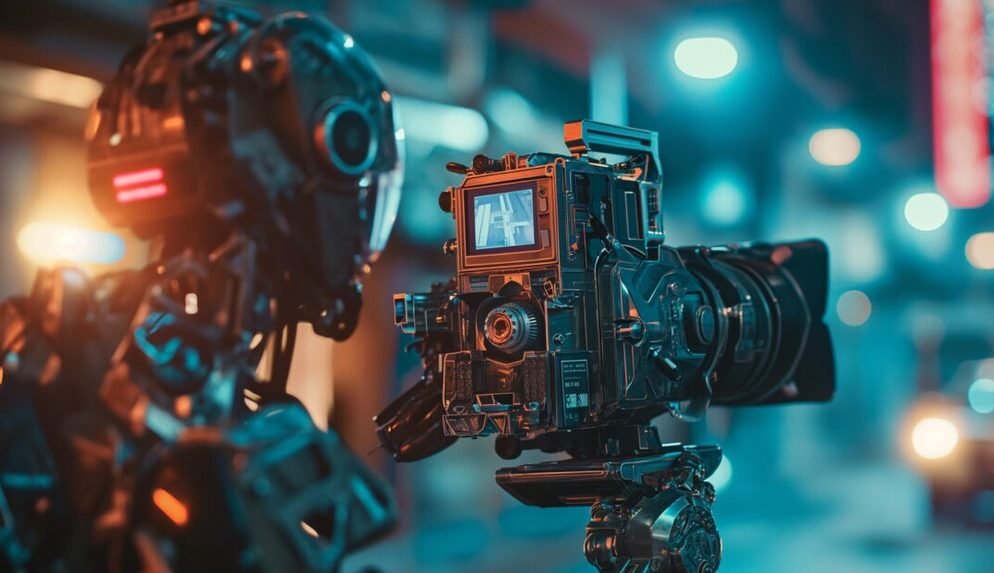
The Impact on Hollywood’s Workforce
While AI offers incredible benefits, it also raises concerns about job security for screenwriters, editors, animators, and actors. Some key concerns include:
- Job Displacement: AI may replace certain creative roles, forcing industry professionals to adapt.
- Ethical Issues: Deepfake technology could lead to unauthorized use of an actor’s likeness.
- Creativity vs. Automation: Some fear that AI-generated content lacks the emotional depth of human storytelling.
- New Opportunities: AI also creates new roles, such as AI technicians and creative consultants who guide AI-driven storytelling.
However, industry experts argue that AI is not here to replace creativity but to enhance it. AI can handle repetitive tasks, allowing human creators to focus on artistic vision and innovation.
AI and the Future of Storytelling
As AI technology evolves, new storytelling techniques are emerging:
- Interactive AI-Driven Narratives: AI allows for real-time audience engagement, creating customizable storylines where viewers influence plot outcomes.
- AI-Generated Music Scores: AI can compose background scores that adapt dynamically to a scene’s emotions, enhancing storytelling.
- AI-Powered Dubbing and Localization: AI can translate and sync dialogues across multiple languages with near-perfect accuracy, broadening a film’s global reach.
- AI-Driven Film Restoration: Old films are being restored with AI, enhancing image quality, color, and even missing frames.

The Future of AI-Driven Hollywood
As AI-driven studios gain momentum, we can expect:
- More AI-generated films and TV shows that push the boundaries of storytelling.
- Increased collaboration between AI and human creators.
- Ethical guidelines and regulations to protect actors, writers, and filmmakers.
- AI-powered personalization that tailors movies to individual viewer preferences.
- Hybrid production models where AI handles technical aspects while humans focus on creative direction.
- AI-powered real-time audience analytics that adjust storytelling elements dynamically based on viewer responses.
Conclusion
AI-driven entertainment studios are revolutionizing Hollywood, blending technology with creativity in unprecedented ways. Backed by industry veterans, these studios are leading the next era of filmmaking. While challenges remain, the future of AI in Hollywood promises more efficient production, stunning visual effects, and deeply engaging storytelling. Whether we embrace it or fear it, AI is here to stay, and its impact on entertainment will only grow stronger. The next blockbuster you watch might just be written, edited, or even acted by AI!
Showtime’s Star-Studded Makeover: Hollywood A-Listers Fuel a Bold Rebrand!


